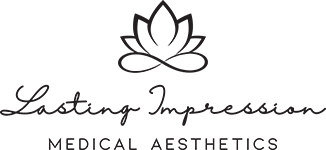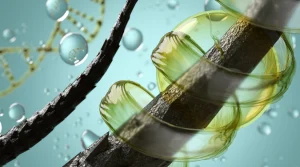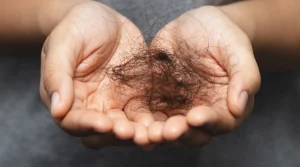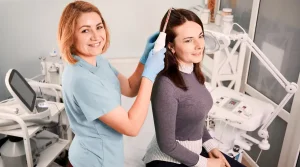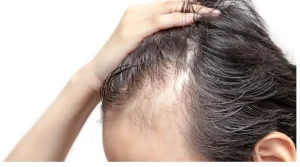The braids, often known as the ‘crowning glory,’ directly represent a person’s personality and style. Extreme hair loss may be a bothersome issue, generating stress and lowering
self-esteem, particularly in women. But, if correctly identified, you may manage hair loss using natural and efficient home treatments.
Causes of Hair Loss
Nutritional deficienciesIt is conceivable that vital minerals such as iron, copper, zinc, and proteins are lacking in your diet. Another reason for hair loss is a vitamin D deficiency. To prevent this, try to go out and enjoy some sunshine.
1. Hormonal Imbalance
Women over 30 may have hormonal imbalances that result in hair loss. This is mainly caused by an excess of dihydrotestosterone (DHT). While estrogen is the primary hormone produced by women, testosterone and other androgens, such as DHEA, are also present in the female body. When women become older, they may start converting these androgens to DHT.
2. Thyroid issues
If the thyroid gland in the front of the neck produces too much or too little thyroid hormone, the hair growth cycle may vary. If you have a thyroid problem, you may notice additional symptoms such as weight increase or loss, sensitivity to cold or heat, and changes in heart rate and hair loss.
3. Polycystic ovary syndrome (PCOS)
Women with polycystic ovarian syndrome (PCOS) have a hormonal imbalance that results in more significant amounts of androgens than usual. This often causes hair to grow on the face and body as the hair on the head thins. PCOS may also cause ovulation issues, acne, and weight gain.
4. Stress
Severe stress may result in abrupt hair loss that might linger for months. Reduce your odds of having hair loss by reducing stress via exercise, meditation, yoga, and massages.
How to Prevent Hair Loss
1. Regular Trims
Hair is most damaged towards the tips, and a decent cut every six to eight weeks will help alleviate your problems. Damaged hair has a straw-like texture and may be trimmed to encourage growth and eliminate broken ends.
2. Stress
Stress is a core cause of many health issues, including hair loss. It may also interfere with hair development and cause premature greying. Daily meditation and yoga practice may be beneficial in relieving stress.
3. Avoid Taking Hot Showers
Hot showers, as soothing as they are, dehydrate strands and deplete the scalp of natural oils, resulting in dry, brittle hair that is more prone to breakage. Instead, use lukewarm water and rinse your hair at the coldest temperature possible.
4. Combing Wet Hair
When moist, our strands become more delicate and prone to breaking. As a result, it’s essential to use a wide-toothed comb or let them air-dry before style.
5. Wearing Tight Hairstyles
Pulling your hair too tightly from the roots damages it and should be avoided. It’s also a good idea not to tie your hair up too tightly when sleeping.
Tips For Controlling Hair Fall
1. Shampoo
It is essential to understand your scalp type and choose the appropriate shampoo. You should also wash your hair according to your scalp. For example, over-washing hair with a dry scalp may cause hair loss, as you can not clean greasy locks three times a week.
Also, ensure that the shampoo is free of chemicals such as sulfate, paraben, and silicone, which may leave your hair brittle and prone to breaking.
2. Conditioner
A quality conditioner may do wonders for your hair. It includes amino acids that assist in healing damaged hair and keep it silky.
3. Diet and Exercise
You must provide your hair with enough nutrition, notably protein, and iron. Nevertheless, in addition to having a balanced diet, ensure you exercise. Yoga and meditation may help reduce hair loss.
4. Chemical Treatments
Hair treatments such as straightening, perming, and coloring are unsuitable for your hair. Also, avoid using blow dryers and curling irons, particularly on damp hair, since they boil the water in your hair shaft, making it brittle.
If you must use a blow dryer, utilize the lowest heat setting. If you will use additional heat-generating products on your hair, start with a strengthening leave-in conditioner and conclude with a protective spray.
5. Oiling
Oiling stimulates blood circulation and feeds the roots. Make it a habit to massage your hair using a scalp-friendly oil once a week. After two hours, cover it with a shower cap and wash it off with a light shampoo.
6. Too many styling products
Utilizing too many chemically loaded hair products might be hazardous in the long term. It’s recommended to avoid them and instead attempts natural DIY recipes.
Essential Oils that Reduce Hair Fall
1. Lavender Essential Oil
Lavender is thought to promote hair development. It has characteristics that aid in cell formation and stress reduction. Researchers have discovered that it also promotes hair growth. It also possesses antiseptic and antibacterial attributes, which assist in improving the condition of your scalp.
To use this oil, combine three spoons of lavender oil with three scoops of carrier oil, such as olive or heated coconut oil, and apply them straight to your scalp. Let it sit and absorb into your hair for 10 minutes before shampooing. This procedure may be repeated multiple times each week.
2. Peppermint Essential Oil
Studies have shown peppermint oil to improve the number of follicles, follicle depth, and total hair growth. It also aids in hair development throughout the growing period.
2 drops of peppermint essential oil should be combined with your preferred carrier. Massage your scalp for 5 minutes (this also serves as a stress reliever) before thoroughly washing your hair with shampoo and conditioner.
3. Rosemary Essential Oil
Aside from hair development, rosemary hair oil is an excellent solution for hair thickness. It can enhance cellular generation and functions similarly to minoxidil while having fewer adverse effects.
The procedure for applying rosemary oil to your scalp is the same as for using lavender oil.
Natural Treatments for Hair Loss
1. Egg Mask
Eggs are high in sulfur, phosphorus, selenium, iodine, zinc, and protein, all aiding hair development.
To prepare the mask:
- Combine one egg white and a teaspoon of olive oil and honey in a dish.
- Use the ingredients and apply a paste to your body, from root to tip.
- Rinse with a gentle wash after 20 minutes.
2. Licorice Root
This herb reduces hair loss and subsequent hair damage. It soothes the scalp and removes any dry flakes/dandruff.
- Make a paste with a tablespoon of crushed licorice root and a quarter teaspoon of saffron to one cup of milk.
- Let this sit on your scalp and hair length overnight.
- Wash your hair the following morning.
- This should be done twice a week.
3. Coconut Milk
Its protein and necessary fats encourage hair development and help prevent hair loss.
To make coconut milk, follow these steps:
- Simmer a medium-sized coconut in a pan for five minutes.
- Let it cool after straining.
- Next, add one tablespoon each of crushed black pepper and fenugreek seeds to the milk.
- Apply to the scalp and hair.
- Rinse with shampoo after 20 minutes.
4. Green Tea
This tea contains antioxidants, aiding hair development and preventing hair loss.
- Depending on the length of your hair, soak two to three teabags in one to two glasses of boiling water.
- Pour this over your scalp and hair when it has cooled while gently massaging your head.
- After an hour, rinse with cold water.
5. Beetroot Juice
Beetroot is high in vitamins C and B6, folate, manganese, betaine, and potassium, all necessary for good hair development. Moreover, it helps as a detoxifier by keeping the scalp clean.
- Boil and crush 7-8 beetroot leaves with 5-6 henna leaves.
- Apply this paste on your scalp and rinse with warm water after 15-20 minutes.
- Greek Yoghurt and Honey
- Combine 2 tablespoons of yogurt, 1 tablespoon of honey, and 1 tablespoon of lemon juice in a mixing dish.
- Apply this paste to the scalp and roots using a dye brush.
- Let 30 minutes before rinsing with cool water.
- Once a week, apply this paste.
6. Aloe Vera
Aloe Vera is a powerful home treatment for hair loss and hair growth. It is also helpful in treating scalp issues such as itching and flaking.
- Take the pulp out of the stem of the aloe plant.
- Apply it to your scalp and hair and keep it on for 45 minutes.
- Rinse with plain water. Repeat this process three to four times weekly to obtain more significant results.
7. Fenugreek Seeds
Fenugreek, also known as Methi seed, is one of the most effective home treatments for hair loss. It encourages hair development by fortifying hair follicles.
- Soak the fenugreek seeds overnight in water.
- Make a fine paste and apply it to your hair and scalp.
- Let the paste on your head for around 30 minutes.
- To keep your scalp wet, use a shower cap.
- After 30 to 40 minutes, rinse it with plain water.
- There is no need to use shampoo.
- Use it twice a week for a month to reduce hair loss.
8. Onion Juice
Onions’ antibacterial characteristics aid in treating scalp infections, while the sulfur concentration stimulates blood circulation to the hair follicles. It increases hair development and prevents hair loss.
- To extract onion juice, ground the onion and then squeeze out the juice.
- Apply the onion juice on your scalp with a cotton ball.
- Let it on for 20 to 30 minutes before washing it off with warm water and a light shampoo.
- Follow this method once a week to witness the change.
9. Amla
Another helpful home cure for preventing hair loss is Indian Gooseberry or Amla. A lack of understanding of vitamin C; thus, ingesting amla can strengthen the hair follicles and help you regulate it. Amla’s anti-inflammatory and exfoliating characteristics assist in encouraging quicker hair growth, maintaining a healthy scalp, and preventing premature greying.
- Make a paste using lime juice and amla powder.
- Rub it into your scalp and hair.
- Put a shower cover over your head to prevent the paste from drying.
- After an hour, rinse it with plain water.
Diet For Healthy Hair
Although treatments and shampoos may help maintain healthy hair, a nutritious diet is a key to thick, lustrous, and strong locks.
Spinach
The primary reason for hair loss is iron deficiency. Spinach is high in iron and vitamins A, C, and protein. It also includes sebum, a natural conditioner for hair, and omega-3 acid, magnesium, potassium, and calcium. They aid in the maintenance of a healthy scalp and beautiful hair.
Carrots
Carrots, known to be healthy for the eyes, contain Vitamin A, promoting hair development. A lack of vitamin A may cause a dry, itchy scalp. Carrots are known to increase hair thickness, make hair shiny, enhance blood circulation, strengthen hair, protect hair from external stresses such as pollution, and help reduce hair breakage and fall.
Eggs
Since hair is made up of 68 percent keratin protein, eggs aid in the repair of damaged hair. They are also high in biotin, a B vitamin that promotes hair growth.
Oats
Oats are high in fiber, zinc, iron, omega-6 fatty acids, and polyunsaturated fatty acids (PUFAs), promoting hair development and making it thick and healthy.
Walnuts
Walnuts are high in biotin, B vitamins (B1, B6, and B9), Vitamin E, protein, and magnesium, which all help to build hair cuticles and nourish the scalp. It helps to protect your cells from DNA damage caused by sun exposure.
Lentils
Lentils are high in protein, iron, zinc, and biotin. They are also high in folic acid, vital for repairing red blood cells’ health, which delivers oxygen to the skin and scalp.
Chicken
Lean foods, such as chicken or turkey, are vital in protein, which helps to strengthen brittle hair and prevent breakage.
Strawberries and Guavas
Strawberries have a high silica content. A trace mineral called silica is necessary for hair strength and development. Rice, oats, onion, cabbage, cucumber, and cauliflower are also high in silica. Vitamin C also helps to keep your hair from getting brittle and breaking. Although oranges are often thought to be the finest source of vitamin C, one guava has four to five times as much.
Yogurt
Yogurt contains vitamins B5 and D, proven to support hair follicle health.
Sweet Potatoes
Beta carotene prevents dry, lifeless hair and encourages the glands in your scalp to produce an oily fluid known as sebum. Orange fruits and vegetables, such as carrots, pumpkin, cantaloupe, mangoes, and sweet potatoes, are high in this.
Exercises And Yoga For Hair Growth
Exercises
Try these exercises to improve your hair growth organically.
Jogging: We often overlook the pores on our scalp. Running causes a lot of sweat, which is excellent for hair growth.
Neck Exercises: Neck exercises are the most effective strategies to promote hair growth.
Side To Side Hops: Side-to-side hops help with hair development and keep your cardiovascular health in check.
Yoga
The following list of yoga positions promote hair growth:
- Adho Mukha Svanasana (Kapalbhati Adho Mukha Svanasana)
- Sarvangasana\sBalasana
- Sirsasana \sVajrasana \sUttanasana \sMatsyasana
Hair Loss Medical Therapy
Minoxidil
This OTC drug is available in liquid, foam, and shampoo versions. Use the cream on your scalp once daily for ladies and twice daily for males for the most outstanding results. Most people prefer foam, which may be applied to damp hair.
Minoxidil products can promote hair growth or delay the rate of hair loss – or both. It requires at least six months of therapy to begin regrowth or to prevent further hair loss. The person also
determines the time frame. One of the possible side effects is scalp inflammation.
Prescription Spironolactone Pills
This medication, also known as Aldactone, acts to cure hair loss by treating hormones. It binds to androgen receptors and reduces the body’s testosterone processing. You should consult with a doctor or pharmacist about the potential advantages and hazards of spironolactone.
Light And Laser Therapy
Laser devices may encourage hair growth in persons suffering from androgenic alopecia and pattern baldness. Alternative names for laser treatments include:
- Therapy using red light
- The cold laser
- A gentle laser
- Photobiomodulation
- Biostimulation
Commonly Asked Questions:
Q. What should I do about my extreme hair loss?
A. In situations of hair loss, seeing a dermatologist or trichologist is preferable. An expert can guide you in the proper route in this respect.
Q. Is it possible to reverse alopecia?
A. There is currently no treatment for alopecia areata. But, with the correct medicine and a healthy lifestyle, there is a nearly 80% chance that your hair will regrow within the following year.
